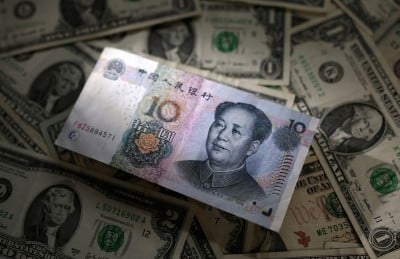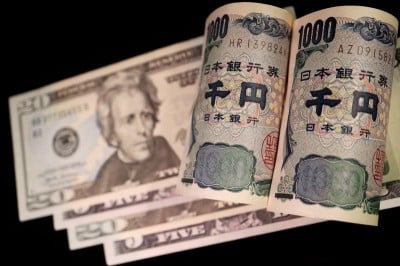Have you ever said to yourself, "How exactly does the U.S. economy work?" During a recession, you might think, "Not too well!"
01 of 07
GDP
Everything the U.S. economy produces is measured by GDP. When the GDP growth rate turns negative, the economy enters a recession.
That has happened throughout the history of U.S. recessions. When the economy contracts for years, it's called a depression. Learn the difference between recession and depression.
The most important part of the economy is consumer spending. The other three components are business expenditures, government spending, and net exports.
The U.S. economy is no longer the world's largest. China has outpaced current U.S. GDP statistics. The U.S. is the world’s second-largest economy, while India and Japan follow in third and fourth place.
02 of 07
Supply and Demand
Supply and demand are the forces that drive the U.S. economy. Supply includes labor, represented by employment, and natural resources, such as oil, land, and water. Oil prices drive 70% of the cost of gas.
Demand, or personal consumption, drives almost 70% of the economy. A lot of this occurs during the holiday shopping season, which starts on Black Friday.
The recession increased unemployment. Many people became discouraged over ever finding a job and dropped out of the labor force. As a result, 38.1 million, or one-third of Americans are poor or near poor. That's one reason the U.S. economy has slowed. Income inequality wasn't caused by the recession. It began worsening through the 2000s.
03 of 07
Inflation and Deflation
Inflation occurs when demand is greater than supply and prices go up. Your income and the rate at which it keeps up with rising prices determine how much inflation impacts your life.
Inflation is difficult to stamp out. Once it occurs, people begin to expect ever higher prices. They will buy now before prices go up more in the future. That increases demand even more. Another cause of inflation is an increase in the money supply.
The U.S. government measures the current inflation rate with the Consumer Price Index, but it sometimes gives misleading information. The commodities market determines oil, gas, and food prices. They can skyrocket and plummet within months. The Federal Reserve uses the core inflation rate instead. That excludes energy and food costs.
If inflation occurs in assets, such as housing or stocks, it's called an asset bubble.
The opposite is deflation; it occurs when prices fall. That also happens to assets, such as housing prices and stock portfolios. That creates stock crashes and economic crises. Deflation is worse than inflation for an economy.
04 of 07
Fiscal Policy
Fiscal policy is the $4 trillion federal budget. All the revenue ultimately comes from taxes on your income, so it is important for you to know how it is spent. Fiscal policy can stimulate, guide, or depress the economy, but only business can create economic growth.
The president starts the budgetary process each year, but only Congress has the government spending authority. For example, President Obama's economic stimulus package was his idea, but Congress approved it.
Spending outpaces revenue, creating a budget deficit. Each year, it is added to the national debt.
One large contributor to the deficit and debt is the Bush tax rebates. They follow the theory of supply-side economics. It says that lower taxes will eventually spur the economy enough to replace the loss in taxes. That hasn't happened. But tax rebates are very popular because people hate paying them. Many have proposed a flat tax or a fair tax.
05 of 07
Monetary Policy
Monetary policy is controlled by the Federal Reserve. That banking system is guided by the Federal Reserve Chair Jerome Powell. The Federal Reserve tools include the fed funds rate, the money supply, and the use of credit. These tools control how interest rates affect the economy. Compare the current fed funds rate to historical fed funds rates to know whether the Fed is using an expansionary or a contractionary monetary policy.
The primary objective of monetary policy is to control inflation. Its secondary objective is to stimulate the economy. It is also charged with the smooth functioning of the banking system. For this reason, the Fed chair is often called the most powerful person on the planet.
In 2009, Ben Bernanke was named Time's Man of the Year. As a Fed chair, he took aggressive steps to address the 2007 banking meltdown and the 2008 financial crisis. Yet, many critics argue that the United States should return to the gold standard.
06 of 07
Trade Policy
Trade policy affects the cost of imports and exports by regulating trade agreements with other countries.
Trade agreements, like the North American Free Trade Agreement, seek to reduce trade costs and increase each country's GDP. The World Trade Organization attempted an ambitious worldwide trade agreement in the Doha round of trade talks. That didn't work since the European Union and the United States didn't want to end agricultural subsidies.
Instead, the United States pursued bilateral and regional trade agreements. These include the Trans-Pacific Partnership and the Transatlantic Trade and Investment Partnership. If they were approved, they would be the largest trade agreements in the world.
Exchange rates affect trade by changing the value of the U.S. dollar. The dollar is the world's global currency. Most international trade contracts are done in dollars. When the dollar is strong, it allows the prices of oil and other commodities to fall. That can create deflation.
07 of 07
Financial Markets
An implosion in the financial markets threw the economy into the worst recession since the Great Depression. How did this happen? It began with derivatives that were supposed to insure against defaults on sub-prime mortgages. Demand for the derivatives was so strong, it almost forced insurers like the American International Group to default. That threw Wall Street into a panic which spread throughout the world. Unregulated derivatives created the credit crisis of 2008.
The building blocks are stocks and stock investing. They are riskier than bonds. The safest are Treasury bonds. The riskiest are junk bonds. You can invest in either with mutual funds.
Many wealthy investors let hedge funds do the investing for them. Others seek higher returns by trading in risky commodities, futures contracts, and credit default swaps. This made many argue for more regulations on Wall Street.
Frequently Asked Questions (FAQs)
What does a strong economy depend on the most?
Analysts vary on which indicator matters the most for strong economies, but they traditionally use real GDP per capita when comparing national economies. Relatively recent research in the 21st century has begun to consider other quality of life indicators, such as leisure time, life expectancy, and economic security.
How does the economy affect me?
The national economy affects nearly every aspect of your daily life, even if they don't immediately appear related. Fiscal and monetary policy affect inflation and loan costs, which in turn affects your ability to afford basics like food or take out a mortgage for a home. Financial markets are tied to retirement accounts like 401(k) plans. Anytime you interact with a service or product, the economy is affecting you.






